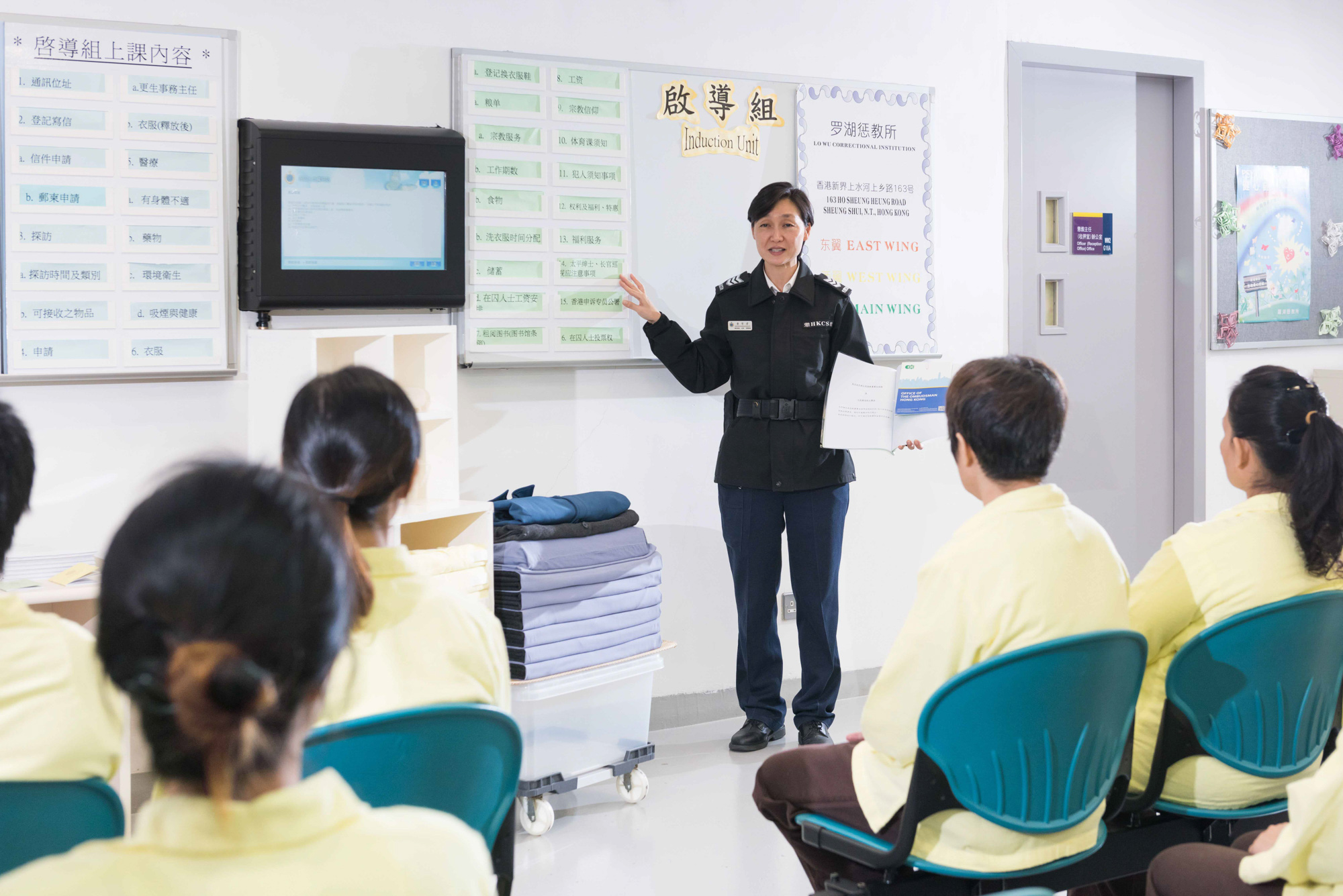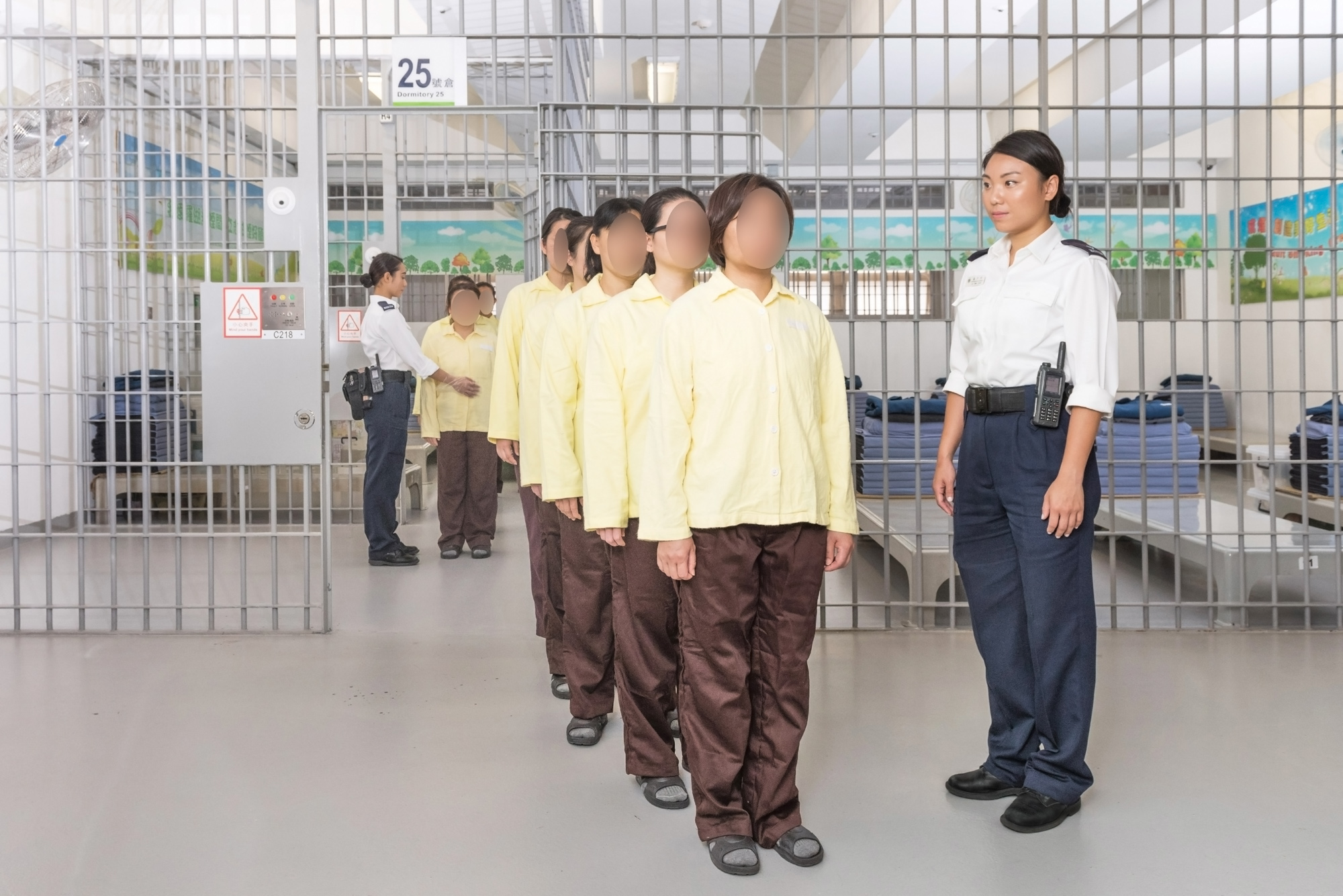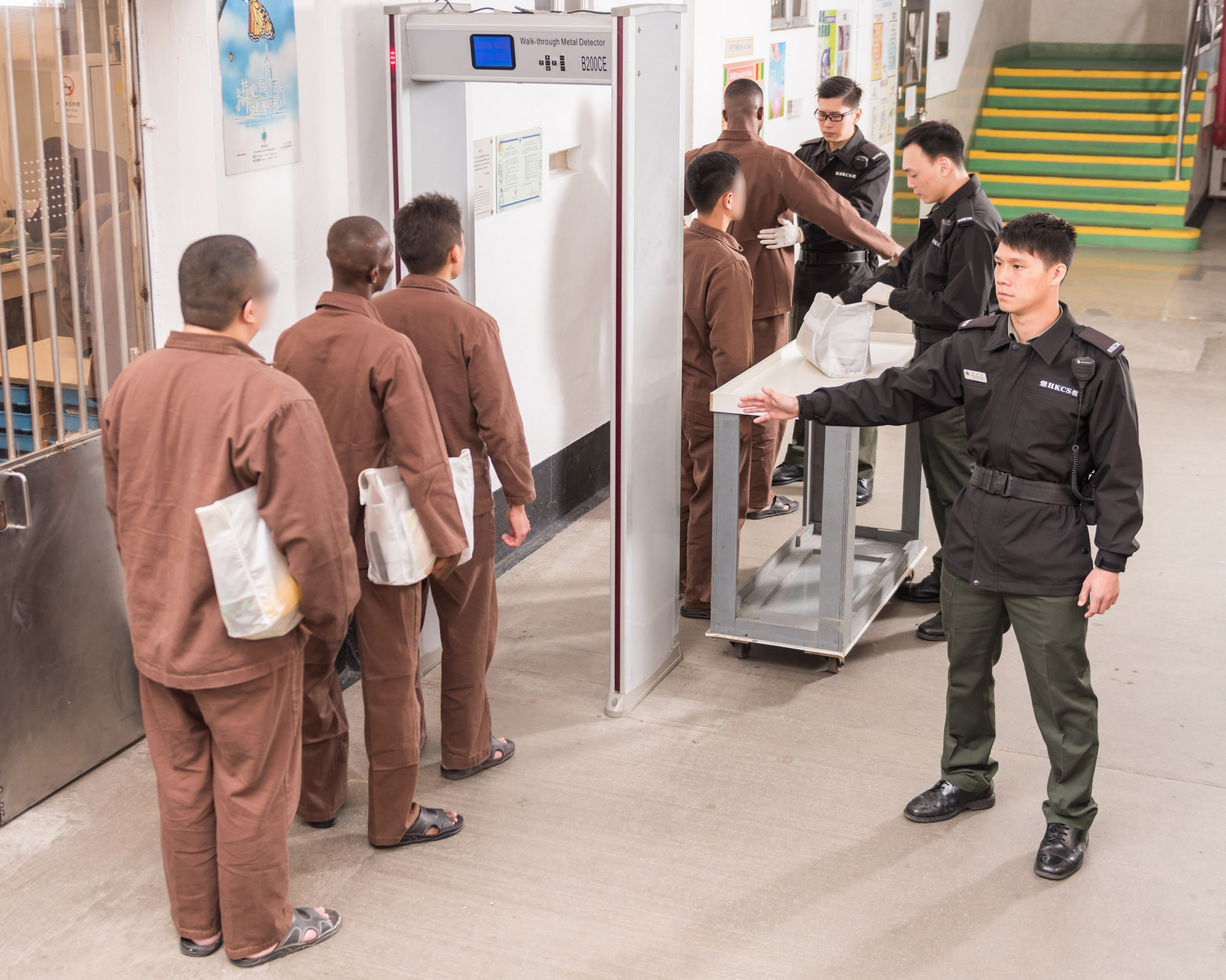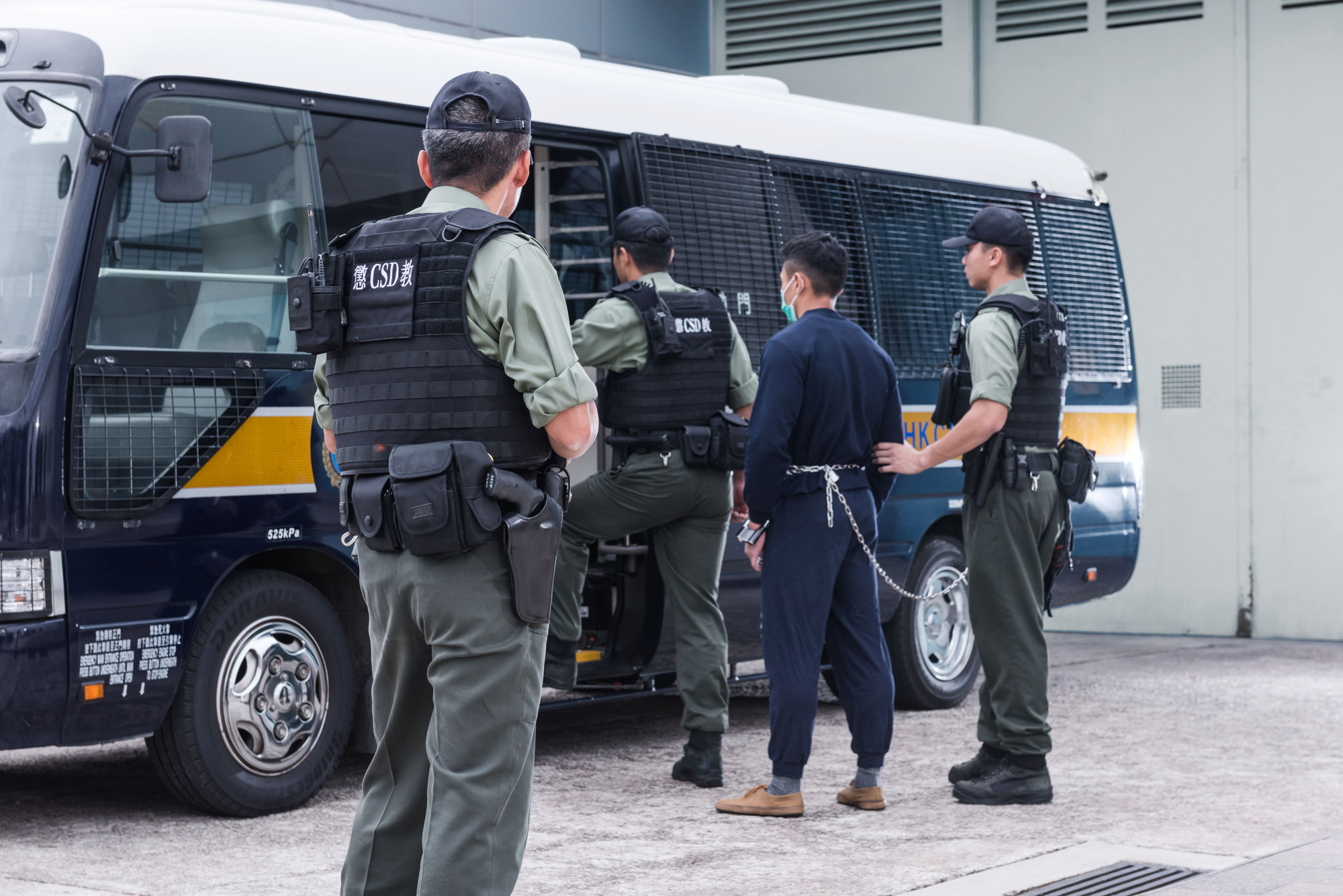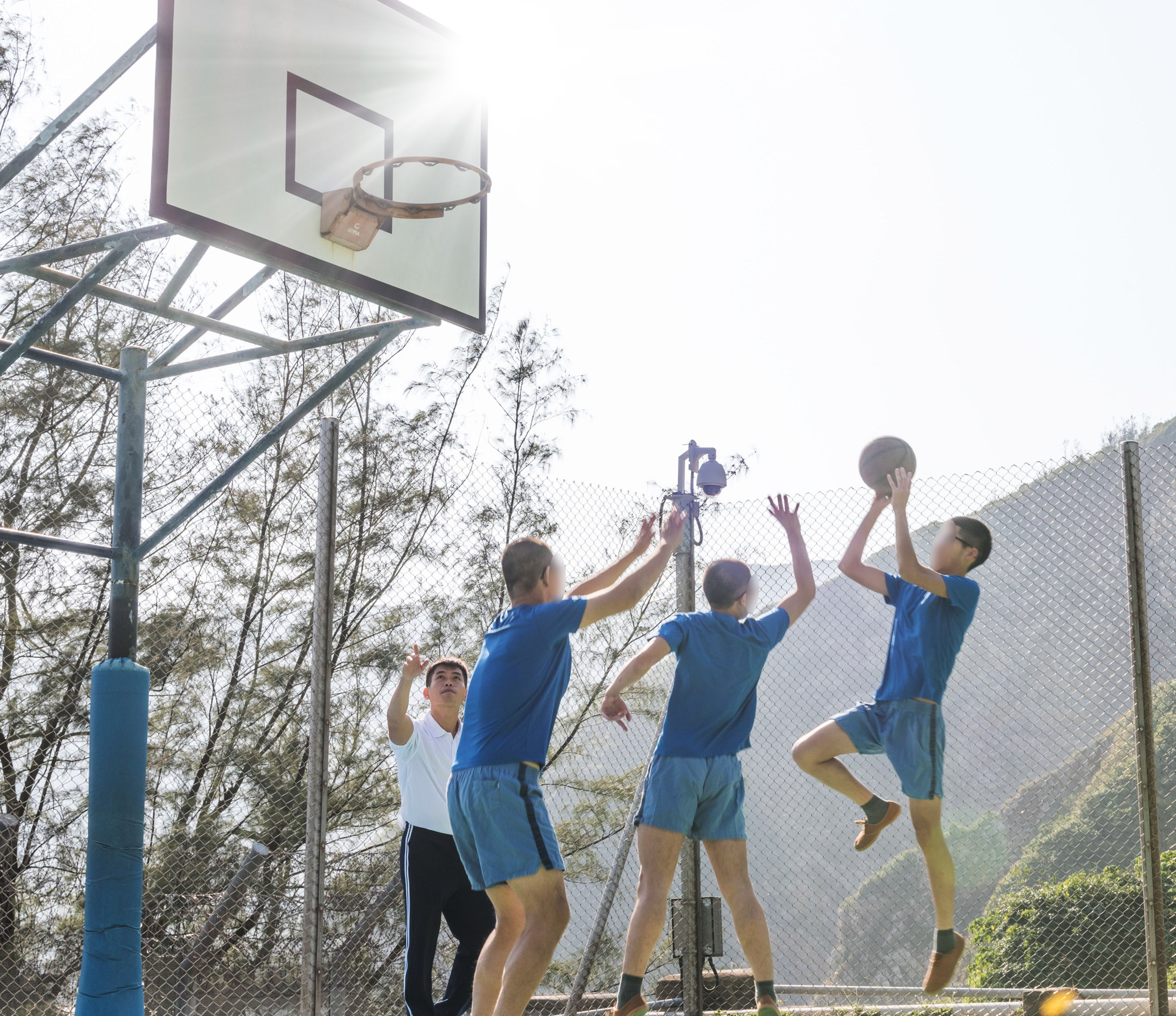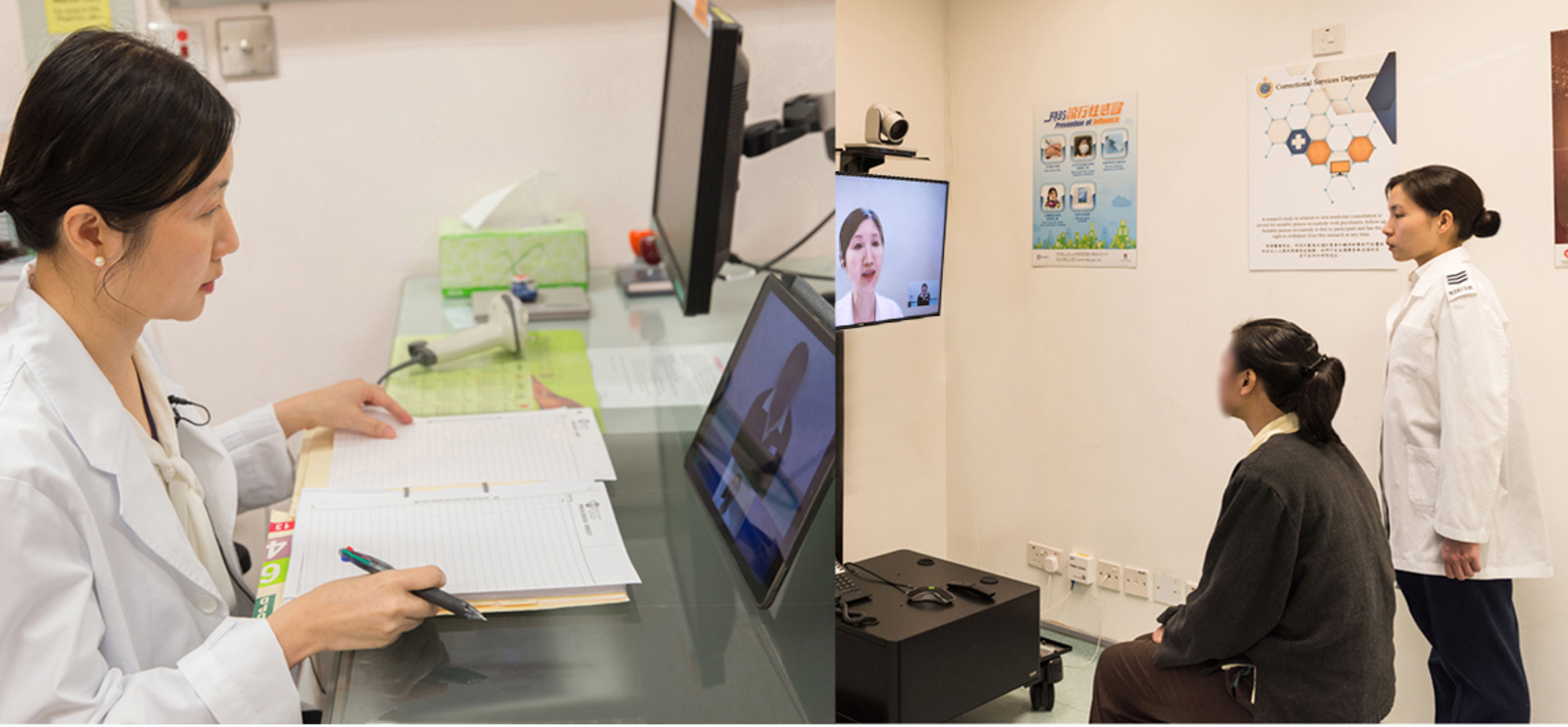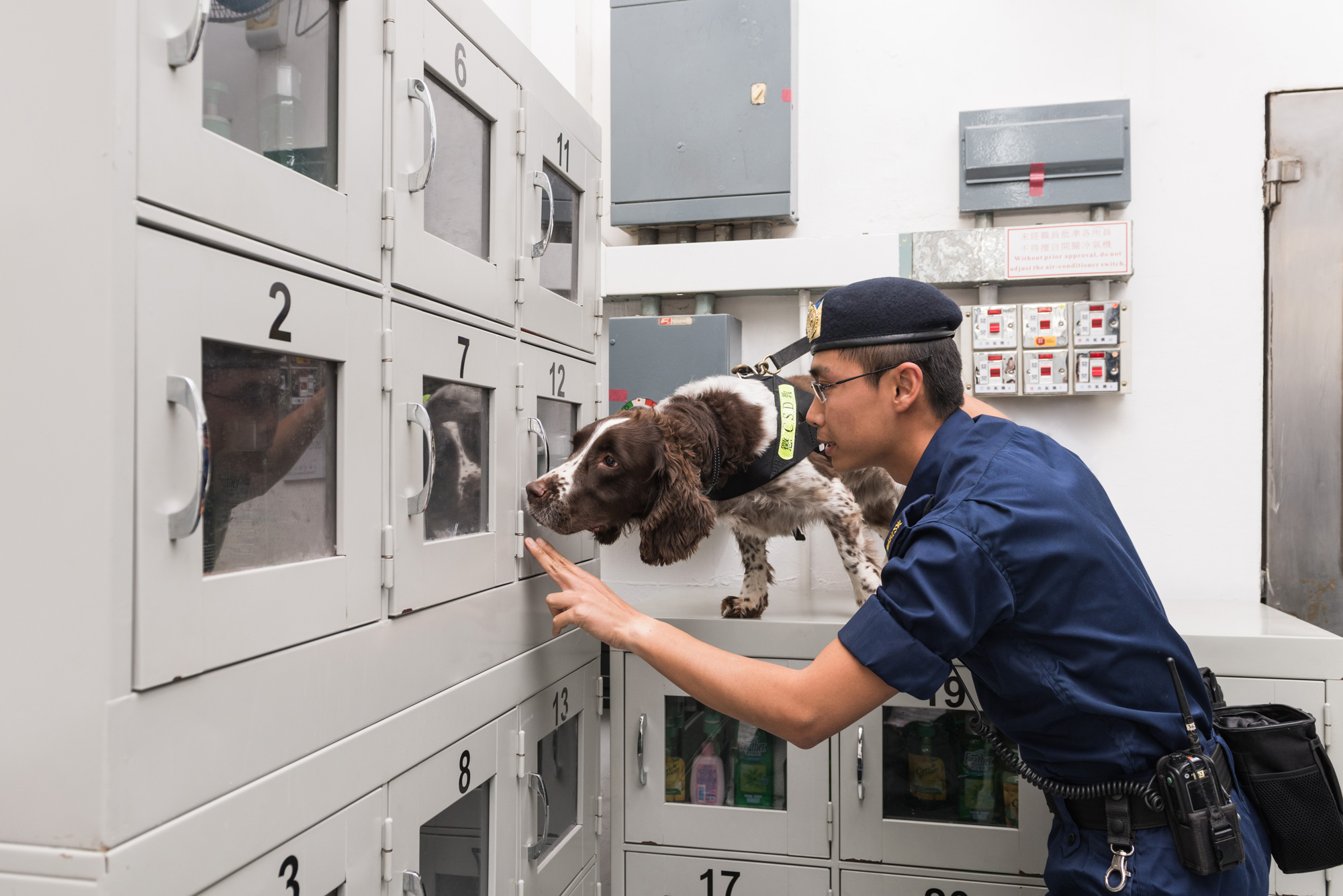In 2017, Operations Division kept on striving for perfection. We attained a number of satisfying achievements in custodial management.
Throughout 2017, all correctional staff made concerted effort to ensure public safety and exert our utmost in maintaining security, order and discipline of correctional facilities so as to minimise the chance of escapes and acts of indiscipline and prevent the smuggling of dangerous drugs to provide a secure, safe, humane, decent and healthy custodial environment for persons in custody. Most of the correctional facilities are either aged or were originally built for other purposes. To meet the current requirements of penal operations and management, the Department will continue to explore other feasible redevelopment and improvement projects. An elderly unit namely “Evergreen Garden” has been established at Tai Lam Correctional Institution since January 2015 in which an integrated correctional programme has been implemented to help elderly persons in custody to reintegrate into society after release as law-abiding citizens. To echo the government’s initiative in promoting smoke-free culture, the Department had officially designated Tung Tau Correctional Institution and Pak Sha Wan Correctional Institution as the “No-smoking Correctional Facilities” in 2013 and 2014 respectively to accommodate adult male persons in custody who have decided not to smoke. To promote a no-smoking culture, the Department has also set up “no-smoking zones” in other institutions including Stanley Prison and Lo Wu Correctional Institution. To facilitate persons in custody to vote in local elections, respective dedicated polling stations were set up in correctional facilities to allow eligible electors in custody to vote in the 2017 Chief Executive Election, 2017 Rural Representative By-election and 2017 Central and Western District Council By-election for the Peak Constituency and Tung Wah Constituency. In the past year, with the professionalism and perseverance of our staff, the Operations Division had lived up to ever-rising challenges and endeavoured to further enhance the operational efficiency and professional image of the Department.

